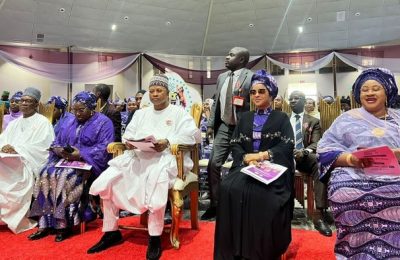When the issue of the Binance with the Federal Government started, the term extradition was prominent in the media and there were discussions on what it entailed and how it affects people. But many did not have a clear picture of the concept.
Similarly, every country enjoys what is known as territorial sovereignty which essentially means that the government and people of the country can direct the country’s affairs without external influences. This is why when a fugitive escapes from one country to another, the government of the country where he escapes to must first grant consent to the other country to remove the fugitive and take him back to their country to be tried and penalized; this process is known as extradition.
Extradition is the process of transferring a person who is accused or already convicted of committing a crime, to the country where the individual is wanted for trial or to serve his sentence.

The process of extradition is governed by treaties between the governments of the countries involved in the process; that is, countries that do not have extradition treaties between themselves cannot lawfully arrest fugitives hiding in each other’s countries. For example, countries such as Iran, China, North Korea, Russia, etc, do not have extradition treaties with the United States.
The extradition process in Nigeria is governed by the Extradition Act and the Extradition Proceedings Rules which starts off when a country that has a treaty with Nigeria requests for a person to be extradited. The application is made in writing by a diplomatic representative or consular officer of the foreign country and is accompanied by a duly authenticated warrant of arrest or certificate of conviction issued in that country.
The Attorney-General of the Federation receives the request and then applies for a warrant of arrest from a magistrate. Once the magistrate issues the warrant, it may be executed anywhere in Nigeria. When the fugitive is arrested, he will be brought before the magistrate for the hearing of the extradition request. The magistrate will receive evidence from both parties in determining whether or not to order the extradition of the fugitive in accordance with the agreement between Nigeria and the country requesting for the extradition.
Every Nigerian has the right to freedom of movement, liberty and dignity of person as provided under the Nigerian Constitution, hence citizens (and in this case, non-citizens who are residents as well) cannot just be handed over to another country only on the basis of a treaty unless the court makes an order enforcing the same.

Not all offences are extraditable. There are some offences that do not fall within the purview of an extradition treaty; extradition aimed at prosecuting or punishing any fugitive on account of his race, religion, nationality or political opinions, political offences, treason, sedition, espionage and disagreement with state ideology.
READ ALSO: Reps issue seven-day ultimatum to Wale Tinubu, Aiteo MD over Nembe oil spill creek







